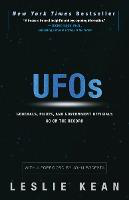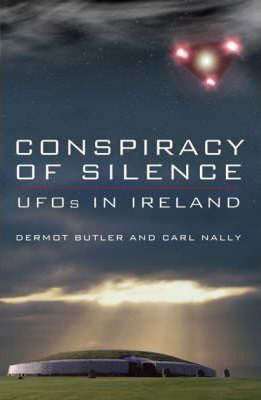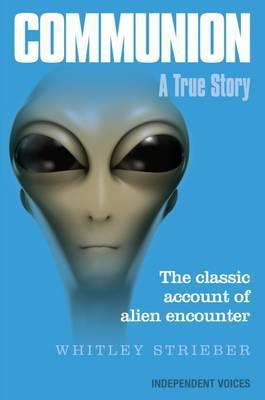Inside the Fall of the American Society for Psychical Research
Ghost/Paranormal
Wednesday 14th, May 2025
4 minute read.
The American Society for Psychical Research (ASPR), once a prominent institution dedicated to the scientific investigation of psychic phenomena, has all but ceased to function, according to recent findings. Founded in 1884 and historically linked to leading academic figures, the ASPR is now facing significant organisational, financial, and archival issues.
For the past six months, a researcher attempting to access the society’s archives encountered silence in response to multiple emails and phone calls. After joining the organisation for €93 and receiving only a PayPal receipt as confirmation, a late December email from the society’s president arrived. It included a request for a year-end tax-deductible donation.
A phone conversation on 8 January 2025 with the ASPR’s current executive director provided some insight. Describing the situation as “a bit chaotic”, she explained that the organisation was in the process of moving offices and invited the researcher to submit a detailed request via email. However, no response followed the subsequent correspondence.
Historian Alicia Puglionesi, author of Common Phantoms: An American History of Psychical Science, had a similar experience. In 2012, she visited the ASPR’s New York address after repeated attempts to make contact failed. She described resorting to “rounds of obnoxious bell-ringing” while reading Varieties of Religious Experience by William James outside the building. Her persistence led to a meeting with the ASPR’s president, who cited fears of “unscrupulous media coverage” as a reason for screening inquiries.
The ASPR has a complex history. Modelled after the British Society for Psychical Research (SPR), which was established in 1882, the ASPR’s early leadership included academics such as astronomer Simon Newcomb and psychologist G. Stanley Hall. William James, the influential psychologist, served as president of the British SPR in 1894–1895 and was a founding figure of the American counterpart.
Following the 1905 death of early member Richard Hodgson, the original ASPR dissolved. Columbia University professor James H. Hyslop subsequently founded a new, independent ASPR under the same name. Despite intermittent internal divisions, including a 1925 split that was reversed in 1941, the organisation experienced renewed activity under psychologist Gardner Murphy through the 1970s.
However, the past three decades have seen a decline. Though the ASPR remains registered as a 501(c)(3) tax-exempt organisation, its current operations appear minimal. The most recent publicly available tax return, the 2023 IRS Form 990, shows €3.77 million in contributions and €104,000 in investment income. Executive compensation was listed at €168,000, with €34,700 allocated to other salaries, all attributed to one employee—the executive director.
The ASPR reported total assets of €3.34 million and liabilities of €878,000, leaving net assets of €2.46 million.
Financial scrutiny reveals further concerns. Bloggers Tom Ruffles and James A. Conrad documented a series of mortgages totalling over €11 million taken out against the society’s historic headquarters - a Beaux-Arts townhouse at 5 West 73rd Street, located approximately 100 metres from New York’s Central Park. In 2019, the ASPR issued a loan of €1.65 million to an individual identified as “president/trustee” for “working capital”, according to tax filings. These documents also disclose “conflict of interest transactions”.
After a failed attempt to sell the property in 2019 for €16.45 million, the Supreme Court of the State of New York initiated foreclosure proceedings in 2020. The building was auctioned in June 2024 for €10.75 million—an amount reportedly insufficient to cover the outstanding debt.
The ASPR’s website now lists a new address—a rented mailbox at Manhattan Express Shipping on Columbus Avenue—and continues to accept membership payments online. However, there are no recent publications, public events, or staff contact information beyond a telephone number.
The December 2024 fundraising email claimed the organisation’s archives include letters from William James, Henry James, William Butler Yeats, Upton Sinclair, Sir Arthur Conan Doyle, and Harry Houdini, as well as rare spirit photography. It stated, “It has been a challenging time. Our library and archives are secure and we look forward to our future in a new location.”
Ruffles and Conrad have called for intervention, submitting complaints to the New York Attorney General’s Charities Bureau and launching a Change.org petition titled “Save the American Society for Psychical Research!”
Despite their scepticism, some researchers express dismay. “Whatever you may think of spiritualism, telepathy, or apparitions, the ASPR played an important role in the history of psychology, as well as of the larger culture of the late nineteenth and early twentieth centuries in the United States,” one wrote.
Concerns have also been raised over the potential loss or inaccessibility of archival material. “Most responsible organisations like ASPR arrange to deposit their archival materials—letters, documents, and photographs - with a university library,” the researcher noted, contrasting ASPR’s current state with the British SPR, whose archives are held at Cambridge University Library.
The fate of the ASPR’s remaining holdings remains unclear.
For the past six months, a researcher attempting to access the society’s archives encountered silence in response to multiple emails and phone calls. After joining the organisation for €93 and receiving only a PayPal receipt as confirmation, a late December email from the society’s president arrived. It included a request for a year-end tax-deductible donation.
A phone conversation on 8 January 2025 with the ASPR’s current executive director provided some insight. Describing the situation as “a bit chaotic”, she explained that the organisation was in the process of moving offices and invited the researcher to submit a detailed request via email. However, no response followed the subsequent correspondence.
Historian Alicia Puglionesi, author of Common Phantoms: An American History of Psychical Science, had a similar experience. In 2012, she visited the ASPR’s New York address after repeated attempts to make contact failed. She described resorting to “rounds of obnoxious bell-ringing” while reading Varieties of Religious Experience by William James outside the building. Her persistence led to a meeting with the ASPR’s president, who cited fears of “unscrupulous media coverage” as a reason for screening inquiries.
The ASPR has a complex history. Modelled after the British Society for Psychical Research (SPR), which was established in 1882, the ASPR’s early leadership included academics such as astronomer Simon Newcomb and psychologist G. Stanley Hall. William James, the influential psychologist, served as president of the British SPR in 1894–1895 and was a founding figure of the American counterpart.
Following the 1905 death of early member Richard Hodgson, the original ASPR dissolved. Columbia University professor James H. Hyslop subsequently founded a new, independent ASPR under the same name. Despite intermittent internal divisions, including a 1925 split that was reversed in 1941, the organisation experienced renewed activity under psychologist Gardner Murphy through the 1970s.
However, the past three decades have seen a decline. Though the ASPR remains registered as a 501(c)(3) tax-exempt organisation, its current operations appear minimal. The most recent publicly available tax return, the 2023 IRS Form 990, shows €3.77 million in contributions and €104,000 in investment income. Executive compensation was listed at €168,000, with €34,700 allocated to other salaries, all attributed to one employee—the executive director.
The ASPR reported total assets of €3.34 million and liabilities of €878,000, leaving net assets of €2.46 million.
Financial scrutiny reveals further concerns. Bloggers Tom Ruffles and James A. Conrad documented a series of mortgages totalling over €11 million taken out against the society’s historic headquarters - a Beaux-Arts townhouse at 5 West 73rd Street, located approximately 100 metres from New York’s Central Park. In 2019, the ASPR issued a loan of €1.65 million to an individual identified as “president/trustee” for “working capital”, according to tax filings. These documents also disclose “conflict of interest transactions”.
After a failed attempt to sell the property in 2019 for €16.45 million, the Supreme Court of the State of New York initiated foreclosure proceedings in 2020. The building was auctioned in June 2024 for €10.75 million—an amount reportedly insufficient to cover the outstanding debt.
The ASPR’s website now lists a new address—a rented mailbox at Manhattan Express Shipping on Columbus Avenue—and continues to accept membership payments online. However, there are no recent publications, public events, or staff contact information beyond a telephone number.
The December 2024 fundraising email claimed the organisation’s archives include letters from William James, Henry James, William Butler Yeats, Upton Sinclair, Sir Arthur Conan Doyle, and Harry Houdini, as well as rare spirit photography. It stated, “It has been a challenging time. Our library and archives are secure and we look forward to our future in a new location.”
Ruffles and Conrad have called for intervention, submitting complaints to the New York Attorney General’s Charities Bureau and launching a Change.org petition titled “Save the American Society for Psychical Research!”
Despite their scepticism, some researchers express dismay. “Whatever you may think of spiritualism, telepathy, or apparitions, the ASPR played an important role in the history of psychology, as well as of the larger culture of the late nineteenth and early twentieth centuries in the United States,” one wrote.
Concerns have also been raised over the potential loss or inaccessibility of archival material. “Most responsible organisations like ASPR arrange to deposit their archival materials—letters, documents, and photographs - with a university library,” the researcher noted, contrasting ASPR’s current state with the British SPR, whose archives are held at Cambridge University Library.
The fate of the ASPR’s remaining holdings remains unclear.



